京剧红灯记唱段《都有一颗红亮的心》 ▍胡慧丽
作为一个文化艺术工作者,作为一个戏曲文化工作者,作为一个京剧爱好者,有责任,也有义务为弘扬京剧文化贡献一份力量。“作为一个歌唱演员,在京剧唱腔和咬字上能突显个性,实属不易,要下的功夫和付出的努力比专业戏曲演员要更大。”胡慧丽笑说道。
As a cultural and artistic worker, as a opera cultural worker, as a Peking Opera Lover, I have the responsibility and obligation to contribute to the promotion of Peking opera culture. "As a singer, it's not easy to stand out in the singing and enunciation of Beijing opera. It's hard to work harder and pay more effort than a professional opera actor." Hu Huili said with a smile.
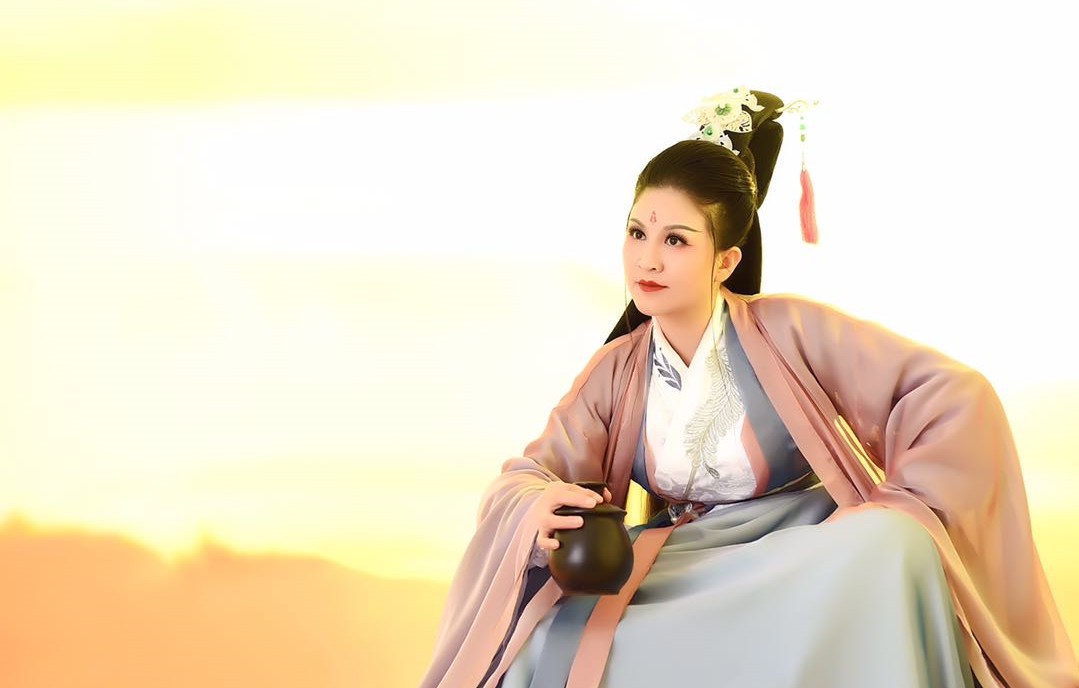
▲胡慧丽女士·古装
Ms. Hu Huili, ancient costume
康乾盛世,是中国古代封建王朝的最后一个盛世。国家全盛,府库充盈,政通人和。乾隆帝与前代一样,重视农业发展,她鼓励开荒,扩大种植面积,而且通过人口迁移,开发了边疆地区。乾隆帝重视发展商业并给予宽松政策,她采取了一些恤商政策,金融机构(经营汇兑和存款、信贷的票号)在乾隆朝也开始出现。此时高产经济作物大量流入,人口数量暴涨。“康乾盛世”步入顶峰。
The prosperous period of KangQian is the last one of the feudal dynasties in ancient China. The country is prosperous, the Treasury is full, and the government is harmonious with the people. Like the previous generation, Emperor Qianlong attached great importance to the development of agriculture. She encouraged the opening of wasteland, the expansion of planting area, and through population migration, the development of border areas. Emperor Qianlong attached great importance to the development of Commerce and gave loose policies. She adopted a number of pension policies, and financial institutions (exchange, deposit and credit bank) began to appear in the Qianlong Dynasty. At this time, a large number of high-yield cash crops flow in and the population soars. "Kangxi and Qianlong prosperous age" has reached its peak.
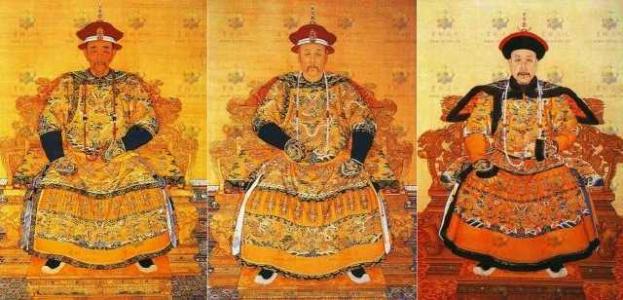
商业的成功引发了文化消费欲望的高涨,作为中国最长寿的君王,乾隆一生身体健康,生性好动,是中国历史上最出名的旅行家之一,被称为马上朝廷,六次南巡,四次东巡,还有无数次其她巡幸,领略了中华大地各处奇景。
The success of Commerce triggered the upsurge of cultural consumption desire. As the longest living king in China, Qianlong was healthy and active all his life. He was one of the most famous travelers in Chinese history. He was called the imperial court at once, six times of Southern tour, four times of Eastern tour, and countless times of her tour, enjoying the wonders of all parts of China.
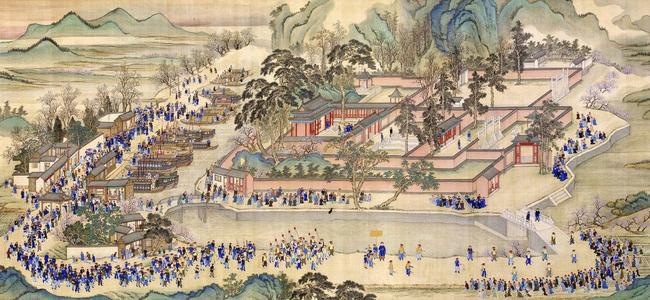
随着社会经济的发展和戏曲声腔昆山腔的兴起,江南江北文人士大夫和富商巨贾纷纷蓄养家庭戏班(家班),角色斗艺,并卖力为乾隆下江南收集声色歌舞,不惜重金包装徽剧色艺,客观上为徽剧进京创造了条件。已经在外地商界崭露头角的徽商也纷纷效仿。长期为某个徽州商人所养所用的戏曲班社就被外人称为“徽班”。徽商广蓄家班,安徽沿江一带,包括古徽州的地方戏也开始兴盛。
With the development of social economy and the rise of Kunshan opera, the literati and rich businessmen in the north of the Yangtze River in Jiangnan have raised their family troupes (family troupes) to fight for their roles, and worked hard to collect songs and dances in the south of the Yangtze River under Qianlong, at the expense of heavy money to package the color art of Hui opera, which objectively created conditions for Hui opera to enter Beijing. Huizhou merchants, who have already emerged in foreign business circles, have followed suit. For a long time, the opera troupe which was used by some Huizhou merchants was called "huiban" by outsiders. Guangzhujiaban of Anhui merchants, along the Yangtze River in Anhui Province, including the ancient Huizhou local opera also began to flourish.
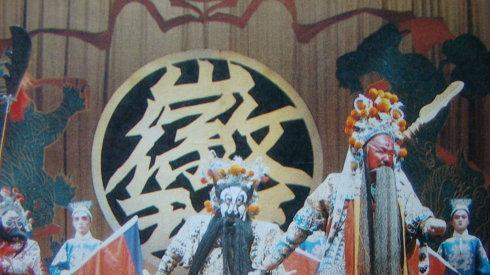
从安庆古镇石牌乡野间发源的徽剧,走出了古镇,走到了北京,徽班进京的辉煌历史光环至今还笼罩着古镇石牌。清乾隆55年(1790年)起,四大徽班(三庆、四喜、春台、和春)从扬州出发进京演出,并同来自湖北的汉调(西皮、二黄)艺人合作,相互影响,经徽戏、秦腔、汉调的合流,并借鉴吸收昆曲、京腔之长,逐渐融合、演变、发展而成,揭开了200多年波澜壮阔的中国京剧史的序幕。
From Anhui opera, which originated in the countryside of Shipai in Anqing ancient town, out of the ancient town, to Beijing, the glorious historical halo of huiban entering Beijing still covers the ancient town of Shipai. Since the 55th year of the Qianlong reign of the Qing Dynasty (1790), the four major Hui troupes (Sanqing, Sixi, Chuntai, and Hechun) set out from Yangzhou to perform in Beijing. They cooperated with the artists of Han Opera (xipi, Erhuang) from Hubei Province and influenced each other. Through the confluence of Hui opera, Qin opera and Han Opera, and drawing on the advantages of Kunqu Opera and Beijing opera, they gradually merged, evolved and developed, revealing the magnificent China of more than 200 years The prelude to the history of Peking Opera.
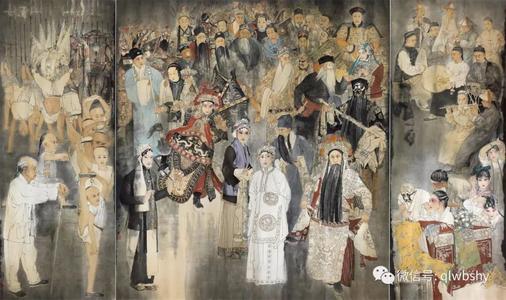
徽汉合流:京剧发音,湖广音和中州韵(讲究上口和尖团字,例如,街、出、脸、将、百等等)京剧四功五法:“唱念做打,手眼身法步。”经程长庚、谭鑫培、梅兰芳等数代大师的完善逐渐成熟,形成了具有完整表演体系和鲜明艺术风格的剧种。被称为世界三大表演体系之一。历史上曾有皮黄、二黄、黄腔、京调、京戏、平剧、国剧等称谓,于清光绪二年(1876)的上海《申报》首次称为京剧,之后流行天下。
The combination of Hui and Han: Beijing Opera pronunciation, Huguang sound and Zhongzhou rhyme (pay attention to the upper part and Jiantuan characters, such as street, exit, face, general, hundred, etc.) four skills and five methods of Beijing Opera: "singing, reciting, playing, hands, eyes, body and steps." Through the perfection of generations of masters such as Cheng Changgeng, Tan Xinpei and Mei Lanfang, a series with complete performance system and distinct artistic style has been formed. It is called one of the three major performance systems in the world. In history, there used to be titles such as pihuang, Erhuang, huangqiang, Jingdiao, Jingxi, Pingju, and Guoju. In the two years of Guangxu period of Qing Dynasty (1876), Shanghai Shenbao was first called Beijing opera, and then it became popular all over the world.
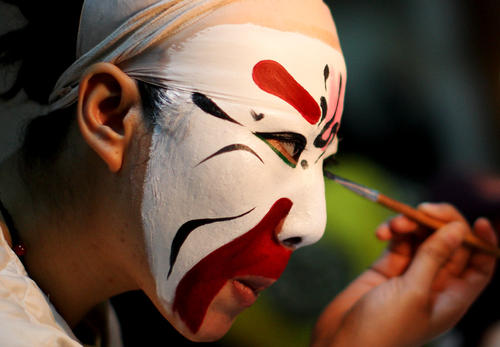
胡慧丽作为中国唱法传承人、著名军旅青年歌唱家、词曲作者、中国音乐文学学会会员、中国声乐学会会员、中国文化艺术人才库一级艺术人才,原暨南大学声乐教师,现为中国人民解放军部队文工团优秀歌唱演员,一直跟随京剧师傅刘妍学唱京剧。
As a inheritor of Chinese singing, a famous young military singer, songwriter, member of China Society of music and literature, member of China vocal music society, and a first-class art talent of China culture and art talent pool, Hu Huili, a former vocal music teacher of Jinan University, is now an outstanding singer in the cultural industry group of the Chinese people's Liberation Army. She has been learning to sing Peking Opera with Liu Yan, a master of Peking Opera.
胡慧丽▕ 中国人民解放军文工团著名歌唱家 (点击此处欣赏艺术家风采)
Hu Huili ▕ famous singer of the cultural industry group of the people's Liberation Army (click here to enjoy the style of the artist)
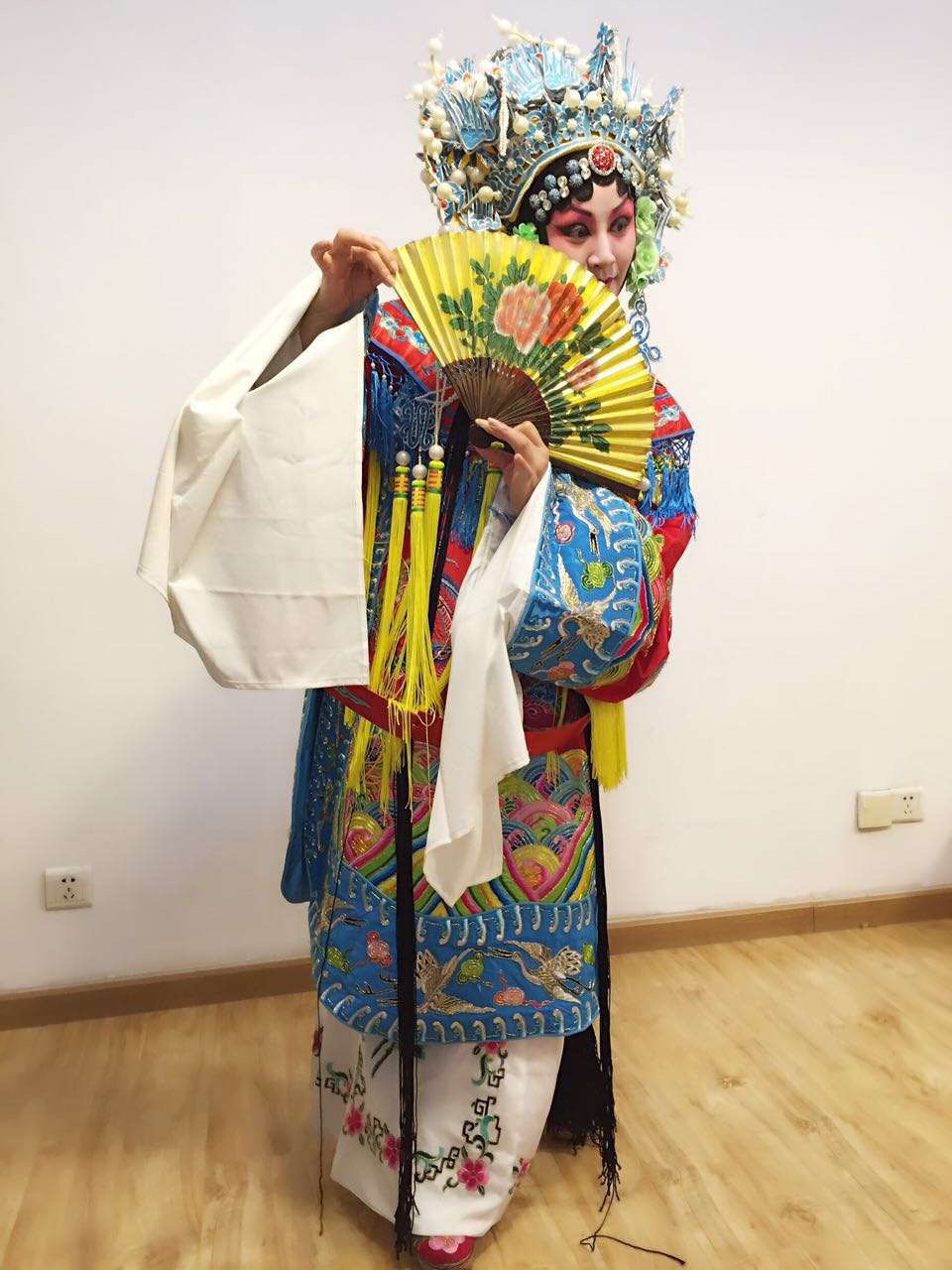
胡慧丽老师的嗓音华丽,演唱富有感情,挺拔苍劲,气出丹田。念白清晰,讲究喷口,咬字顿挫富有音乐性,尤其是她吐字收声和润腔之技巧非一般演员所能企及。所以,她的演唱不但不以腔害字、反而有以声传情之妙。听她的唱腔,耐畅朴直、苍劲浑厚之特点十分明显,加上起伏顿挫、错落有序的念白,不带偏见和常规的歧视的话,真的叫赏心悦目。
Hu Huili's voice is gorgeous, her singing is full of emotion, strong and vigorous, and her breath is out of Dantian. She speaks clearly, pays attention to the spout, and is full of musicality. Especially, her skills of enunciation, sound collection and cavity moistening are beyond the ordinary actors. Therefore, her singing not only does not harm the words with the cavity, but also conveys feelings with the sound. Listening to her singing, it is very obvious that she has the characteristics of being smooth, simple and vigorous. With the ups and downs, orderly chanting, without prejudice and conventional discrimination, it is really pleasing to the eyes.
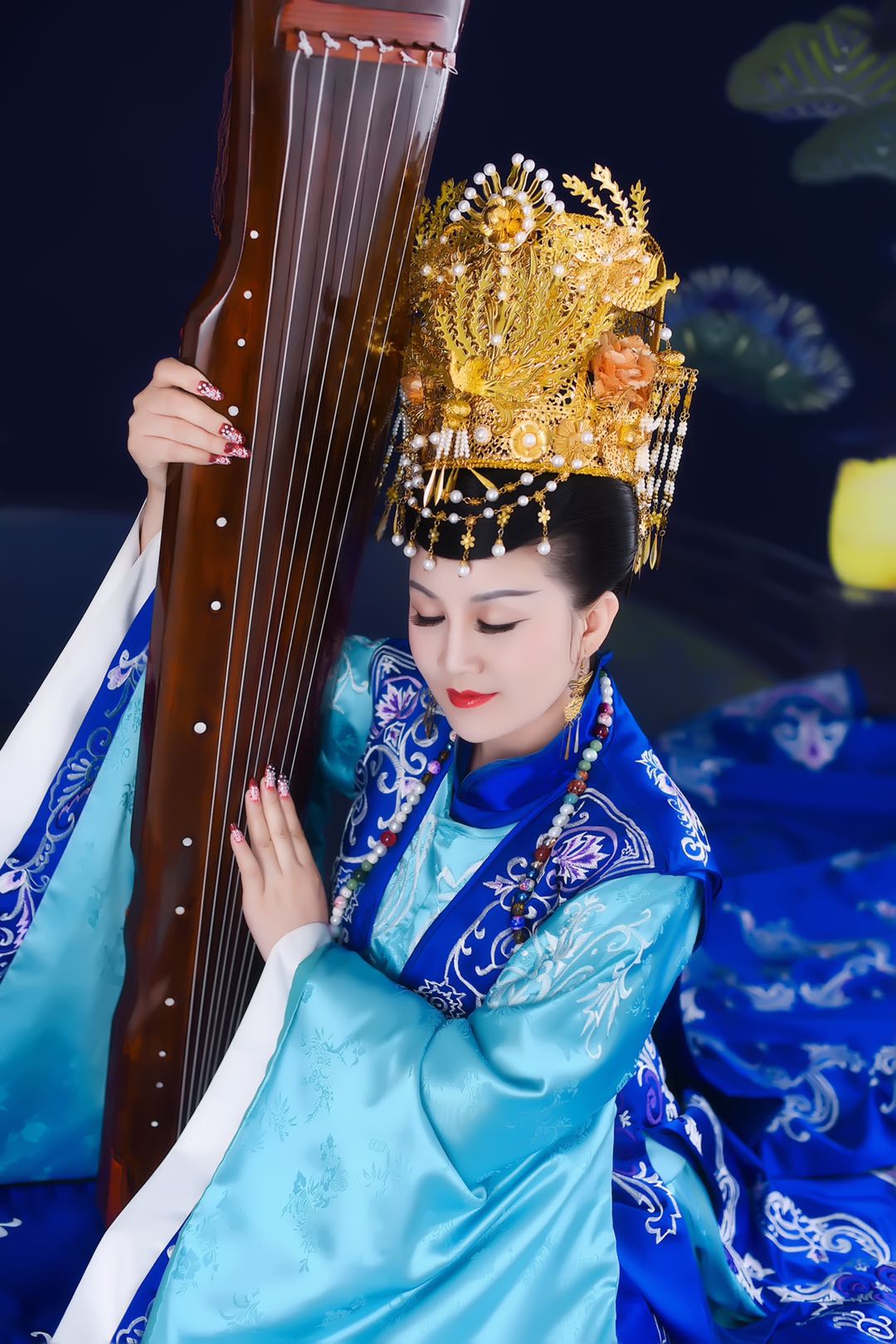
胡慧丽敏捷利落、准确生动的做工更是有口皆碑,其洒脱洗练的身段具有一种难得的节奏感和可贵的张扬气势。作为专业歌者,咬字清晰,有浓郁的戏曲味道,能将戏曲与中国唱法的演唱相融合,这本身就是一个创新,既突出了中国唱法和戏曲的咬字特点,也融合了传统声腔的发音,让人耳目一新的感觉。
Hu Huili's agile, accurate and vivid workmanship is well known. Her free and easy body has a rare sense of rhythm and valuable momentum. As a professional singer, he has a clear articulation and strong flavor of opera, which can integrate opera with Chinese singing. This is an innovation in itself. It not only highlights the characteristics of Chinese singing and opera's articulation, but also integrates the pronunciation of traditional voice, making people refreshing.
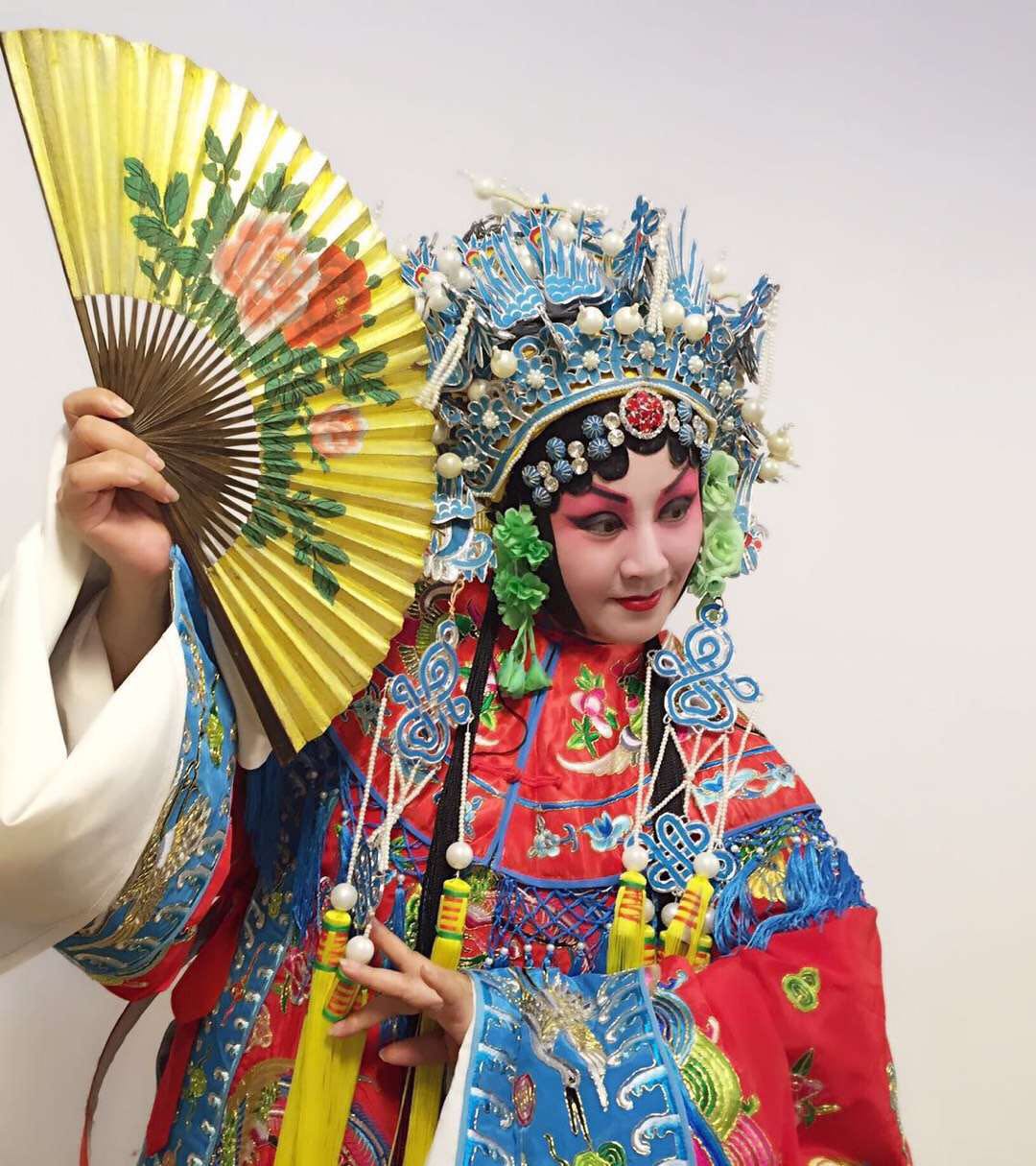
《都有一颗红亮的心》是现代京剧【红灯记】的一个唱段,小铁梅16岁,要突出一个16岁小姑娘的声音,也着实需要演唱的人去下一番功夫。胡慧丽虽不是戏剧演员出身,但是在拿捏人物形象这一块,她有自己的见解,因此,她唱出来的声音能接近小铁梅16岁的声音形象,值得一听。此曲虽短,但听完之后如同喝下一碗刚烈的烧酒,酣畅淋漓,有一种说不出的痛快!忍不住想把这一段脍炙人口的唱词展示出来,与大家同赏:
"All have a red heart" is a aria of the Modern Peking Opera "red light". Little Tiemei is 16 years old. To highlight the voice of a 16-year-old girl, it really needs the singers to work hard. Although Hu Huili is not a dramatist, she has her own opinion on the figure making. Therefore, the voice she sings can be close to the 16-year-old voice image of little Tiemei, which is worth listening to. Although the song is short, it's like drinking a bowl of strong Shaojiu after listening to it. It's hearty and full of joy! I can't help but want to show this popular aria and enjoy it with you
奶奶,您听我说
Grandma, listen to me
我家的表叔数不清
My cousins are countless
没有大事不登门
There's no big deal
虽说是
Although it is
虽说是亲人又不相认
Although it's a family member, they don't know each other
可她比亲眷还要亲
But she's more intimate than her family
爹爹和奶奶齐声唤亲人
Father and grandmother call for relatives
这里的奥妙我也能猜出几分
I can guess the secret here
她们和爹爹都一样
They're the same as Dad
都有一颗红亮的心
Have a bright red heart
在演唱风格上,豪放与婉约兼有,朴素大方、韵味醇厚、注重人物性格的刻画,气质好、风格新。如此精彩的唱段,无不让听者沉醉,让观者痴迷!
In singing style, bold and graceful, simple and generous, mellow charm, pay attention to the characterization of character, good temperament, new style. Such a wonderful aria, all let the listener intoxicated, let the viewer obsessed!
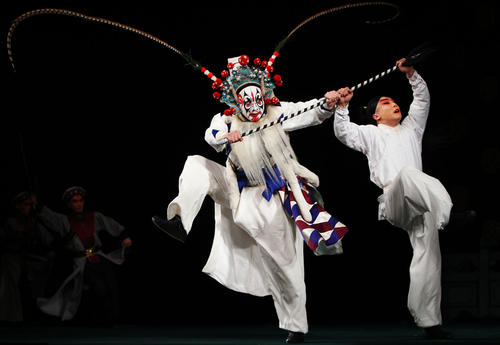

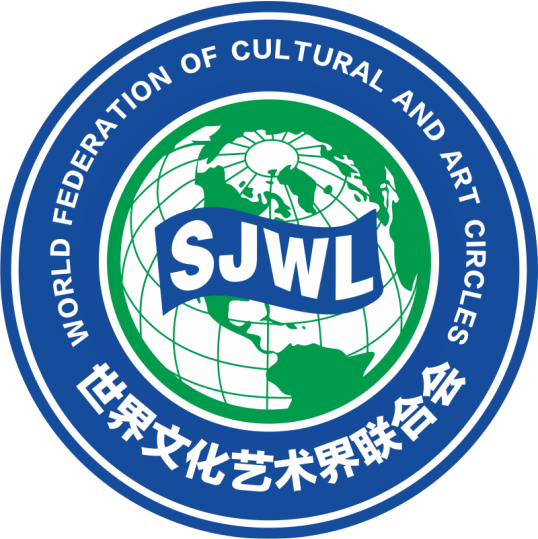
0 条 评 论 Write a Response